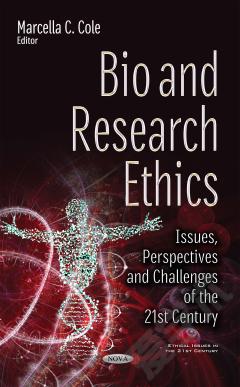Bio and Research Ethics: Issues, Perspectives and Challenges of the 21st Century
As a scientific, materialist worldview becomes increasingly difficult to repudiate, and as philosophers increasingly uncover and articulate the conceptual nature of morality and distinctively moral normativity, the threat of moral anti-realism becomes more and more real. This perspective is argued in Chapter One. Chapter Two discusses how laws and bioethical trends that pertain to the clinical management of patients in a vegetative coma differ from country to country and continue to give rise to unresolved legal debates and scientific controversy. Chapter Three covers how caregivers in palliative care must be supported to better understand patient’s hopes and needs, making them comfortable to decide when or how much they want to eat. Chapter Four synthesizes findings from four empirical studies conducted in Western Africa (Togo) on topics related to the autonomy (end of life decision-making among terminally-ill patients), benevolence and non-malevolence (breaking bad news to elderly patients and their families), and justice (informal payments to physicians, criminal prosecution in cases of HIV transmission) principles of bioethics. Finally, Chapter Five argues that expert members in Ethics committees have an unfair upper-hand, with their decisions trumping other debates in committee deliberations. Qualitative research is brought to bear which illustrates this and which also notes how expertise dilutes the training given to newly appointed ethics committee members.
{{comment.content}}








 京公网安备 11010802027623号
京公网安备 11010802027623号